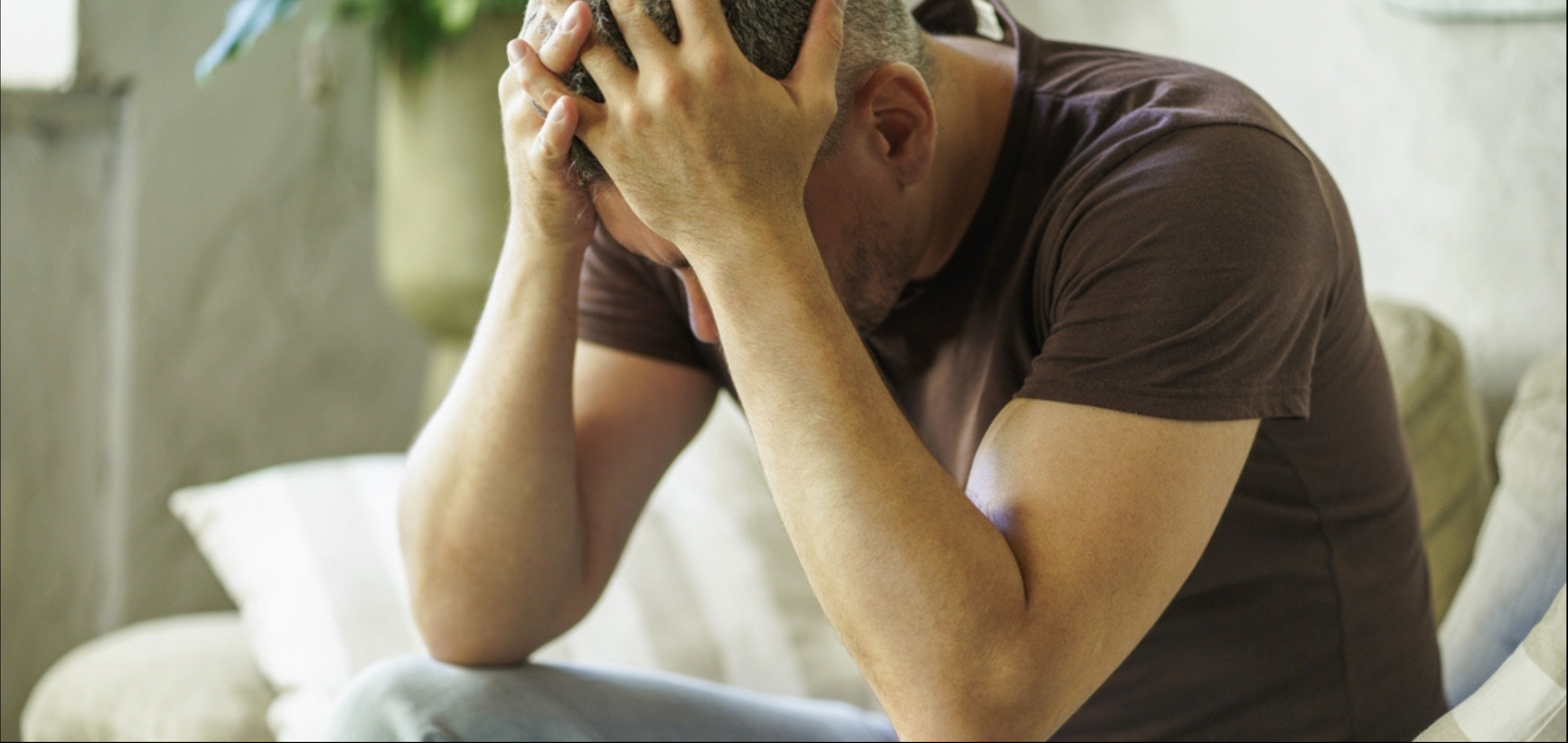Last Updated:
July 21st, 2025
Legal High Detox | Withdrawal Symptoms to Expect
Do legal highs cause withdrawals?
Legal highs were once marketed as ‘safe’ or ‘natural’ alternatives to illegal drugs, but the reality is that many act like stimulants, sedatives or hallucinogens and can be just as addictive. If used regularly, your body and mind may start to rely on them, making it difficult to stop.
When you stop taking them, your system has to adjust, which can lead to withdrawal symptoms. These can vary depending on the legal high, how long you’ve been using it and personal factors like metabolism and mental health. Because the effects of legal highs can be unpredictable, withdrawal can sometimes be more intense than expected.

What legal high withdrawal symptoms can I expect?
The symptoms you experience during withdrawal depend entirely on the substance used. Legal highs cover a wide range of drugs, each with unique effects and withdrawal symptoms. Below are some common legal highs and what to expect during withdrawal:

Benzo-Fury withdrawal
Benzo-Fury withdrawal symptoms resemble those of stimulant withdrawal, as the drug has amphetamine-like effects. Users may experience fatigue, low mood, anxiety and difficulty concentrating. Some report sleep disturbances and strong cravings. Symptoms can last for days or weeks, depending on the level of use.
Benzo-Fury withdrawal

Mephedrone withdrawal
Mephedrone withdrawal can be intense due to its stimulant properties. Common symptoms include depression, irritability, fatigue, difficulty sleeping and strong cravings. Some users also experience headaches, nausea or paranoia. The severity of symptoms depends on usage patterns.
Mephedrone withdrawal

Spice withdrawal
Spice withdrawal can be unpredictable and severe, often more intense than natural cannabis withdrawal. Symptoms include anxiety, paranoia, mood swings, insomnia, nausea, sweating and even hallucinations. Some users experience seizures in extreme cases. Because withdrawal can be physically and mentally distressing, professional detox is recommended to ensure safety and support.
Spice withdrawal

Kava withdrawal
Kava withdrawal is usually mild but can include anxiety, restlessness, headaches, nausea and sleep disturbances. Some long-term users may experience mood swings and mild cravings. While physical symptoms are generally manageable, psychological effects like increased anxiety can be challenging.
Kava withdrawal
Are legal High withdrawals dangerous?
Withdrawal from legal highs can be dangerous, largely because these substances are unregulated and unpredictable. Many have never been properly studied for their long-term effects and unlike well-known substances like alcohol or heroin, the withdrawal process isn’t as well-documented.
This unpredictability means symptoms can range from severe discomfort to life-threatening complications. Some synthetic cannabinoids, for example, have been linked to extreme psychological distress and even seizures. Stimulant legal high withdrawal can sometimes bring on suicidal thoughts, while opioid-like legal highs can cause intense physical symptoms that make relapse more likely.
Because of these risks, going through withdrawal alone can be dangerous. Having professional support can make all the difference, providing a safe environment, medical care and psychological support to help you manage symptoms and avoid complications.

How can a rehab centre help me with legal high detox?
Going through withdrawal from legal highs can be overwhelming but you don’t have to face it alone. A rehab centre offers a safe, structured environment where you’re supported every step of the way. The detox process is tailored to your needs, ensuring you feel as comfortable as possible while your body and mind adjust. Here’s how rehab can help:
Comprehensive assessment
Before detox begins, a full assessment helps understand what substances you’ve used, how long you’ve been using them and any physical or mental health concerns that need attention.
People using legal highs may have underlying anxiety and/or depression, which can impact the withdrawal process. By identifying these factors early, rehab professionals can create a detox plan designed to ease your symptoms and provide the right level of care.
Medical support
Some legal highs cause withdrawal symptoms that can be physically and mentally distressing, ranging from nausea and tremors to panic attacks and severe mood swings. In a rehab setting, medical professionals can monitor your condition and, if necessary, provide medications to ease discomfort and ensure your safety.
This is especially important for those detoxing from stimulant-based or synthetic cannabinoid legal highs, which can cause severe agitation, paranoia or even seizures.
Supervision and monitoring
Legal high withdrawals can be unpredictable, and without professional supervision, symptoms can escalate quickly.
In a rehab centre, trained staff are available to provide immediate care if withdrawal becomes severe. This is particularly crucial for those detoxing from synthetic cannabinoids or stimulant-based legal highs, as these substances have been linked to extreme psychological distress and suicidal thoughts.
Being in a secure environment helps prevent self-harm, relapse or dangerous medical emergencies.
Emotional and psychological support
Withdrawal can take a serious toll on your emotions and mental well-being. Feelings of anxiety, depression or hopelessness are common during detox, making it difficult to stay on track.
Rehab centres provide many different forms of therapy to help you work through these emotions in a safe and non-judgmental space. Therapy also helps you start addressing any underlying reasons for substance use, ensuring you’re not just getting through detox but also beginning a long-term recovery process.
Holistic therapies for recovery
Detox can be stressful,l and holistic therapies help support both the body and mind during this difficult period.
Many rehab centres offer activities such as meditation, yoga, art therapy and nutritional guidance to help you feel more balanced. These therapies can promote overall well-being, making the withdrawal process smoother and more manageable.
Start your legal high detox safely
If you or a loved one is struggling with legal high withdrawal, help is available. Addiction Helper connects you with professional detox and rehab services, ensuring a safe, supportive environment to manage symptoms and prevent relapse.
Whether you’re struggling with Benzo-Fury, mephedrone, Spice or kava, support is just a call away. Our team offers free, confidential advice to guide you toward the right treatment options.
Call us now or visit our website to take the first step toward recovery. A healthier future starts with the right support.
Our compassionate team are ready and available to take your call, and guide you towards lasting the lasting addiction recovery you deserve.
Frequently Asked Questions
(Click here to see works cited)
- “Substance Use and Co-Occurring Mental Disorders.” National Institute of Mental Health, U.S. Department of Health and Human Services, www.nimh.nih.gov/health/topics/substance-use-and-mental-health. Accessed 25 Feb. 2025.
- Edinoff AN, Doppalapudi P, Fort JM. Chronic Synthetic Marijuana Use: A Case of First-Onset Seizures as a Withdrawal Symptom. Health Psychol Res. 2022 Apr 26;10(3):34617. doi: 10.52965/001c.34617. PMID: 35774900; PMCID: PMC9239357.
- Chiappini S, Mosca A, Miuli A, Santovito MC, Orsolini L, Corkery JM, Guirguis A, Pettorruso M, Martinotti G, Di Giannantonio M, Schifano F. New Psychoactive Substances and Suicidality: A Systematic Review of the Current Literature. Medicina (Kaunas). 2021 Jun 6;57(6):580. doi: 10.3390/medicina57060580. PMID: 34204131; PMCID: PMC8226910.

